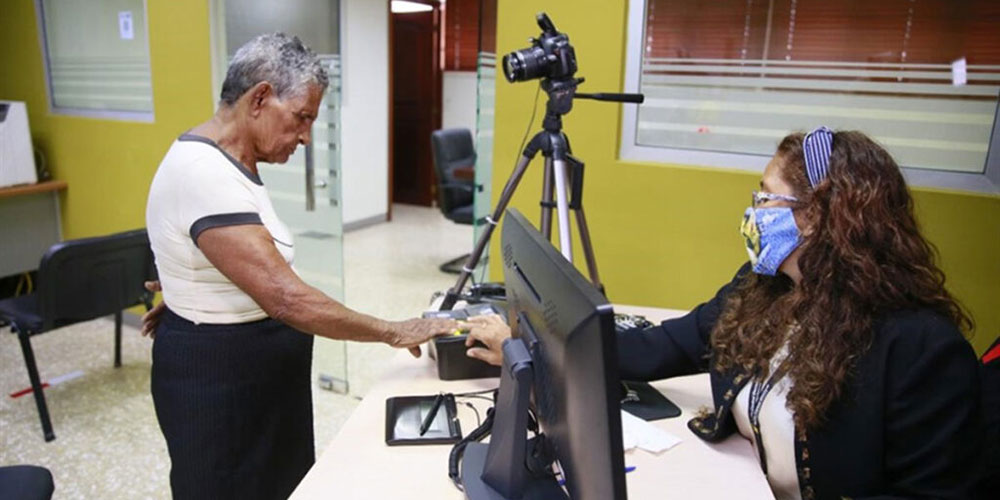The new law on acts of civil status only empowers the JCE to capture, store and process that database
Commercial banks, telecommunications companies, public and private entities that have stored biometric data of people in the Dominican Republic, have a period of 60 days to delete them.
This provision is contained in the transitory article of the Organic Law 4-23 of Civil Status Acts recently approved by Congress and promulgated by the Executive Power.
In this legal system it is established that the Central Electoral Board is exclusively in charge of the collection, storage, treatment and processing of the biometric data of the people, which will be done in the manner determined by the subsequent application regulations of this legislation. .
For these reasons, “institutions that collect biometric data, or that have a biometric database, will have a period of sixty (60) days, after the entry into force of this law, to eliminate small records.”
Who do it?
Many would wonder, are there companies and public and private institutions that have biometric databases? The answer is yes, and all this has been done without regulations and regulations from the JCE, which is the guardian of identity in the country.
At present, many telephone companies and financial intermediation institutions, before providing a service, take photographs of the users or ask them to authenticate their data through the fingerprint system. That is part of the process of verifying or collecting biometric data.
But not only those. A few months ago, the Executive Power, through the Command, Control, Communications, Computers, Cybersecurity and Intelligence Center (C5i) of the Armed Forces, launched the Integral Management, Command and Control System (Sidmco) which, among other things, will allow access and collection of personal data of residents and visitors in the country.
In addition to this, the police implemented the Constantino command and control integral management system, which is used by National Police officers to purge citizens in 30 seconds at the time of being detained.
What will happen now with the Law?
In the report “The biometric, powerful database that should be better used”, made by ElCaribe in August of last year, the Central Board recognized that a few years ago a committee was formed made up of the Supreme Court of Justice, the Attorney General’s Office of Republic, National Police, National Directorate for Drug Control (DNCD), General Directorate of Migration, among others, with the purpose of exchanging information for the creation of a criminal data system but it was not achieved because one of the entities involved wanted to Be the owner of the information center.
Now, with Law 4-23, this is clearly delimited and establishes that “only the Central Electoral Board may offer the biometric data consultation service for the purposes of verifying the identity of individuals.” It also refers that the JCE will provide the means to verify the identity of people by consulting biometric data to public or private institutions that request it, provided that they have a legitimate interest in the use of said data. .
The second paragraph of the law provides that “the consultation of biometric data for identity verification purposes must be carried out respecting the right to privacy of individuals, enshrined in this law and other laws on the matter.”
The body responsible for identity in the country already has the biometric data stored and thanks to this, when institutions of the justice system have requested collaboration to certify the identity of people in conflict with the law, corpses or citizens of interest, it has responded.
Now with the law, what is given is a formality and authorizes it as the only legally recognized entity to have control of that information. At the same time, it provides the power, as occurs with identity and electoral documents, so that public and private entities verify the identity of people through this system.
What is done with the biometric?
It is common for people in conflict with the law to lie before the National Police or the Public Ministry regarding their name, age and even place of residence.
Last year, during a process carried out by the Central Board and the Attorney General’s Office in prisons, the real identities of deprived of liberty could be determined thanks to the Automated Biometric Identification System (ABIS) that the Board has.
“We have found people who gave a name in the Public Ministry and are with others,” said Américo Rodríguez, director of identity cards.
The official recognized that the JCE has the institutional tools that through inter-institutional agreements can be put at the service of the various state agencies and this could greatly contribute to designing and developing better public policies.
There are plenty of examples of cases in which the entity has collaborated with the Police to identify people found beheaded. But not only that, in 2014 it was through this technology that the young man who set fire to one of the subway cars could be identified.
Plenary JCE discussed the issue with Abinader
On the first working day of this year, January 3, the JCE plenary met with the President of the Republic, Luis Abinader, and they raised the need to modify Law 659 on the Civil Registry and according to Román Jáquez Liranzo, president of the plenary , the first president was receptive about it.
“It is a law that comes to present the Dominican Republic as a country that respects the registration of Dominicans and Dominicans, but above all the issue of identity,” he said.
On January 11, the modification of the piece was approved and on the 18th it was promulgated by the Executive Power.















